12 Tips for Teaching Your Child Responsibility from the Start
Learning to be responsible for one’s actions is a lifelong process that begins in childhood. Here are 12 simple ways for teaching your child responsibility from an early age.
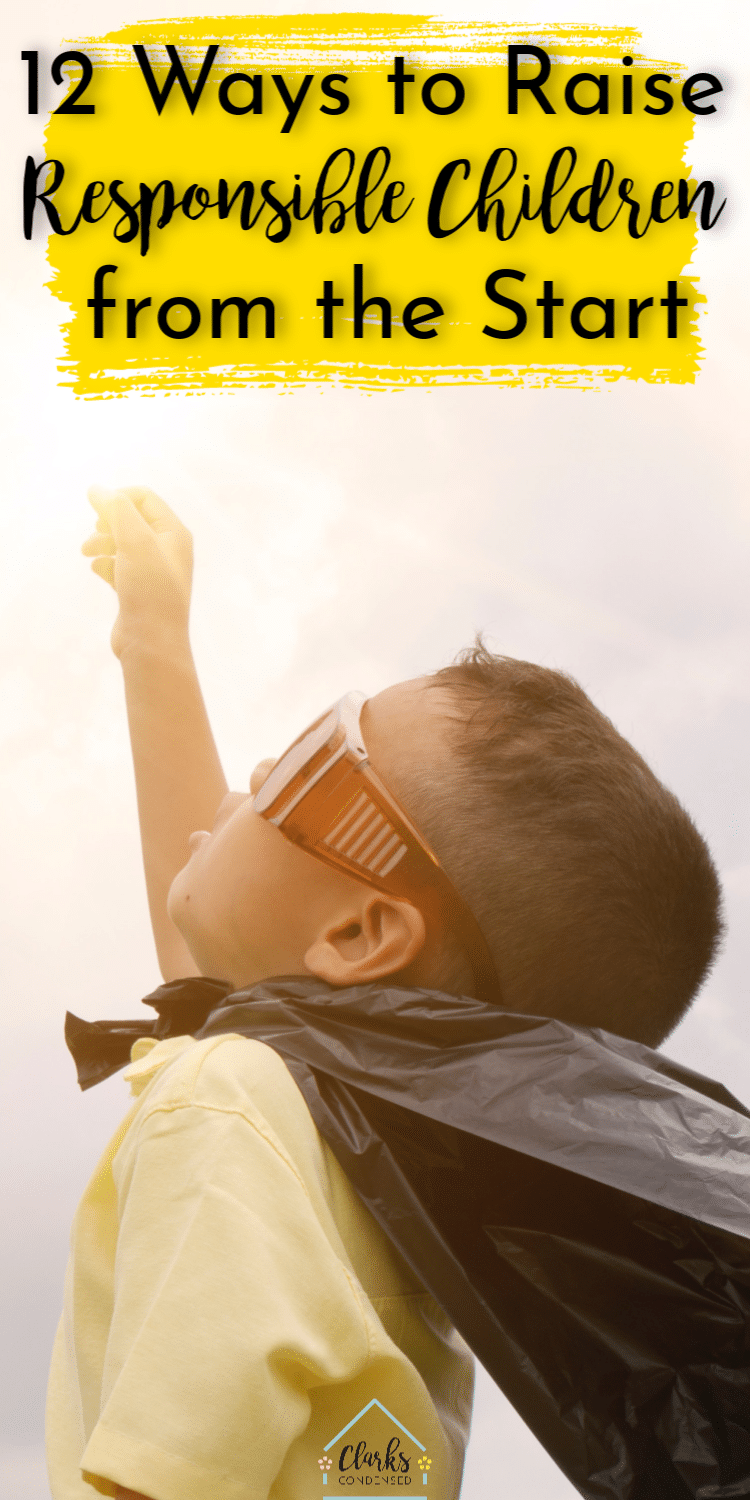
How to Teach Child Responsibility
Thank you to Cohero Health for partnering with us to share these valuable tips!
As much as I’d like to keep my kids little forever, I know that my time with them in my home is but a short period.
During that time, it’s so important that Forrest and I raise them to be responsible adults who can function well in society – and that starts at a young age.
Although I sometimes struggle with giving Jack (our oldest) probably too much responsibility for his age (I think that’s common with oldest children), I’ve found some strategies over the years that have helped both of our kids learn to be more responsible for themselves, their actions, and their environment around them.
Are we perfect? No – and there are certainly times where I just want to do things myself because it’s faster. But so far, they seem to be learning good habits.
So today, I wanted to share some of these tips. Obviously, my children are still young, so we’re just hoping these things will continue as they get older. But at this stage in life, we are seeing positive effects, and I hope you will as well!
Chores
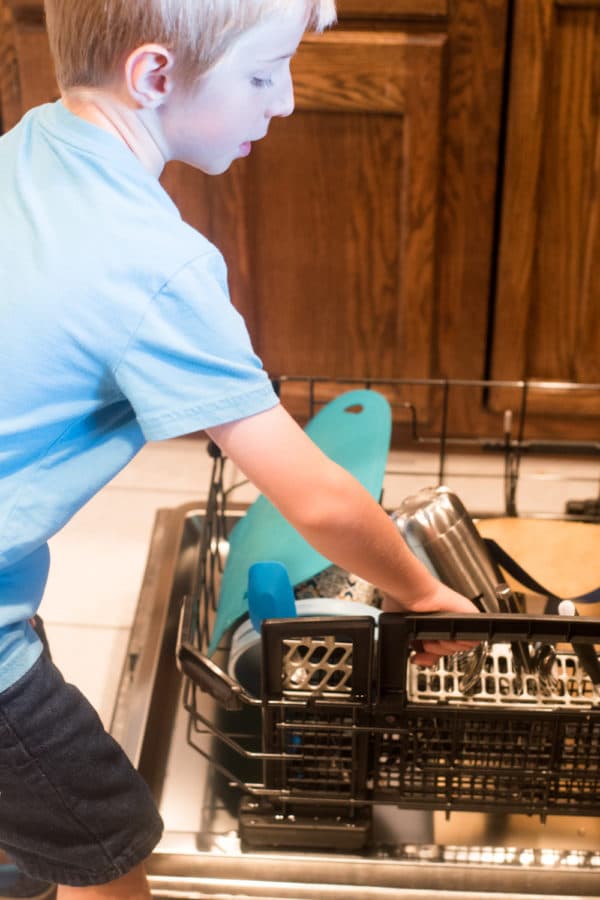
I don’t know of too many children who look forward to doing chores, but there are so many benefits to doing them.
And the earlier you give chores, the easier it is to make it part of your child’s day-to-day life.
When my sister’s kids were little, she started with a chore chart/list with them. They are mostly teenagers now, and for the most part, every week they just do the chores expected of them.
You can start assigning chores from a young age and adjust as the child gets older. It helps them recognize that being part of a family means helping out and allows them to learn how to take care of their home – which they’ll need to do on their own someday!
Chores don’t have to be complicated – Oliver has a job to help me shut the door on the dishwasher container. Now that Jack’s older, his jobs have gotten more complicated (like putting away the silverware), but he never complains!
Realistic Expectations
Be realistic with what you expect of your children. I wrote this post several years ago called “You are Only Four”, where I reflect on the time when I expected Jack, as a four-year-old, to keep his baby brother from falling down the stairs.
It wasn’t my finest moment.
With age comes more responsibility, but you have to keep in mind how old your child is – as well as what their current developmental stage is.
Some children are more mature than others and can handle more responsibility.
If you find your child being increasingly frustrated, it might be a sign that you need to adjust things a little bit. It’s good to have expectations for your child and help them improve, but you also need to be considerate of them and adjust things as needed.
Involve in Self-Care
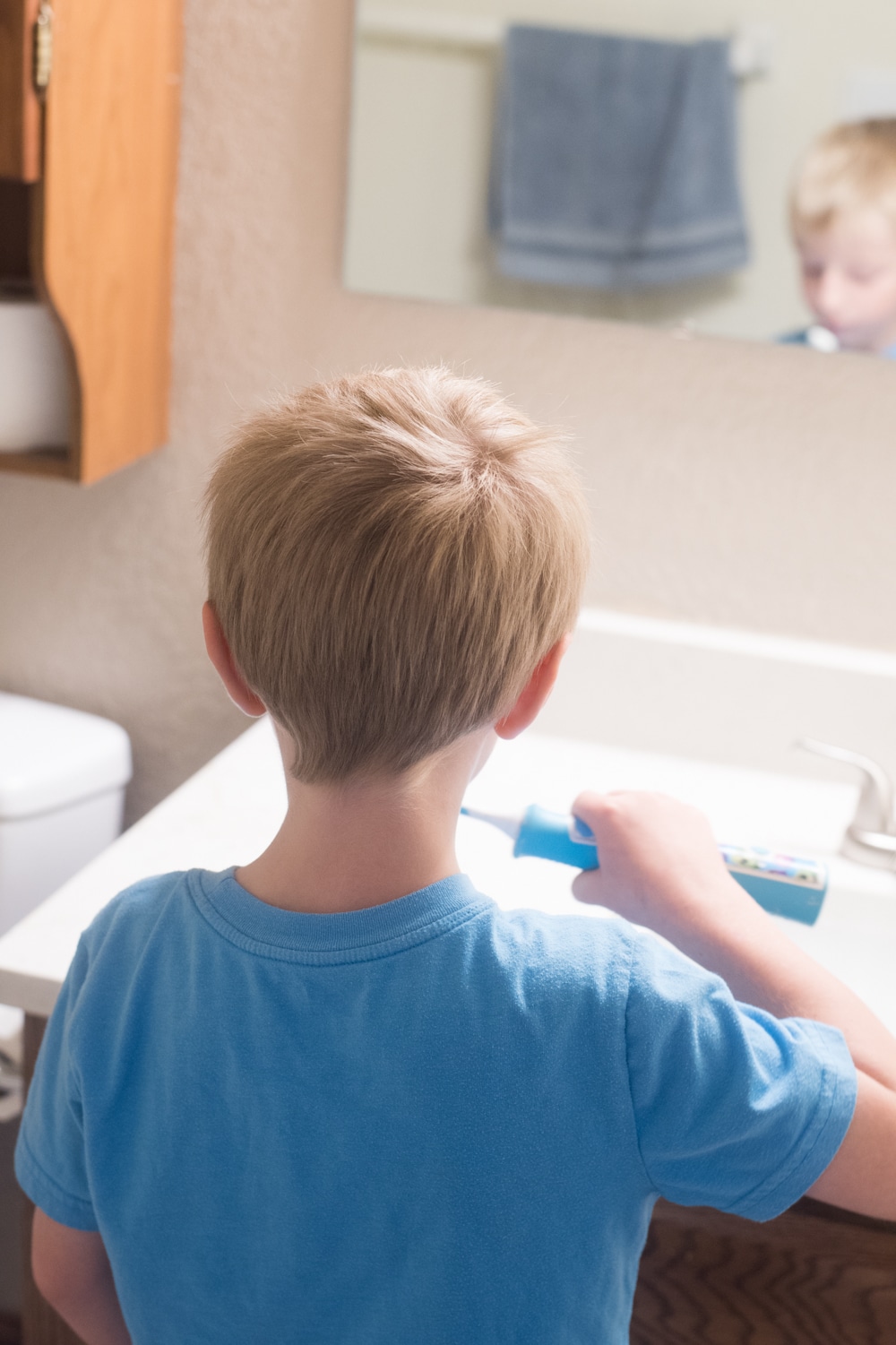
Learning to take care of yourself from a young age is important – tasks as simple as brushing teeth and getting yourself dressed are essential.
Helping your child learn the importance of self-care will make a big difference in their life. I have met people who never had to do anything for themselves until they left home, and it was a HARD adjustment.
One huge area that I think gets overlooked is the management of their health. Whether they have a chronic illness or allergies that require regular management, or just remembering to take their daily vitamins, this is a great skill to have them learn early on.
For instance, Oliver reminds us every night that he needs to take his vitamins. I’ve been so proud that he’s been so vigilant.
If your child has a more serious illness, finding ways to make managing their care themselves is essential.
A few weeks ago, we talked about. This is one way to involve your child in the management of their asthma. As I mentioned in that post, by the time kids reach their teenage years, over 50% aren’t managing their asthma as well as they could.
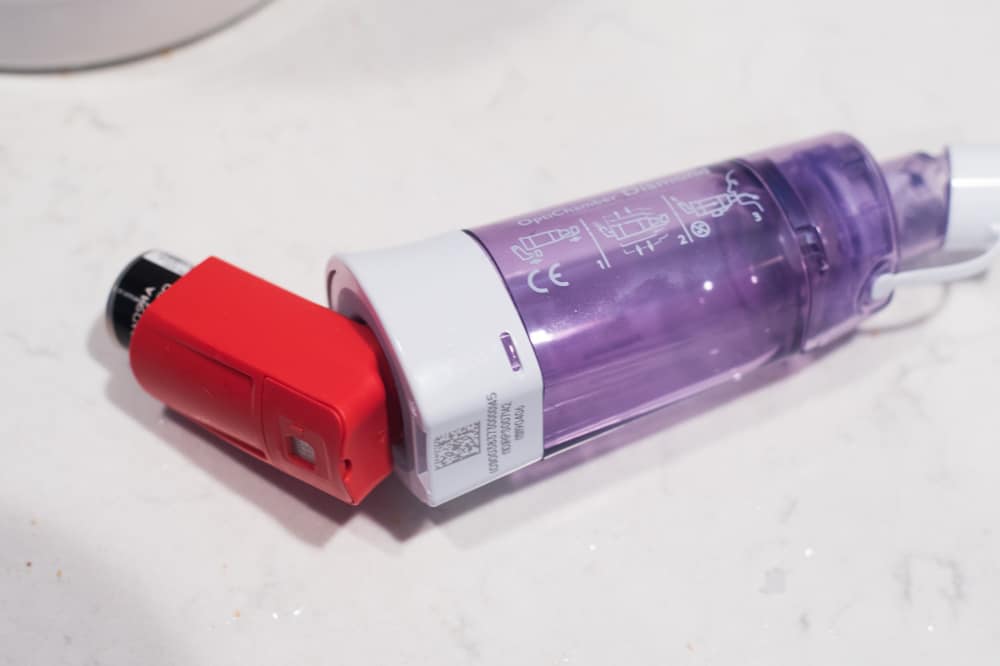
Although my boys don’t have constant asthma, it is something they deal with when sick – and with Jack, it seems that he may have exercise-induced asthma as well. Teaching him to be aware of his triggers and that it’s not a weakness to recognize that he is struggling is so important.
A lot of kids just don’t want to seem different, and as they get older, anything that makes them “stand out” (like asthma or allergies) can feel embarrassing. However, by using a tool like BreatheSmart from an early age, it can help them take control of the situation and recognize it’s just part of life.
Teaching children from a young age to take care of their health is essential in the long run. Giving them resources to make it easier for them is great for parents to do – especially in this world where there are so many!
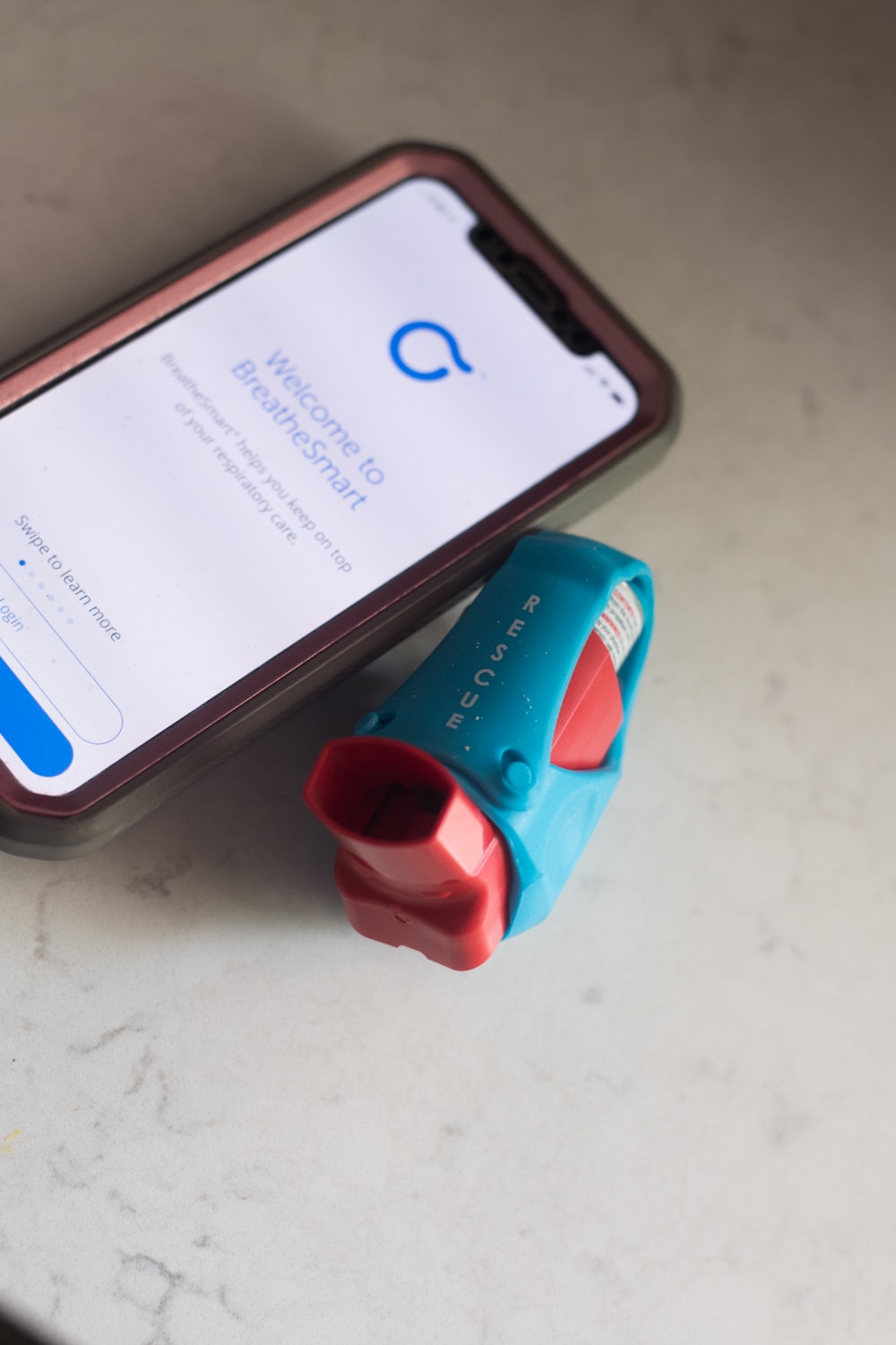
From innovative tools like the BreatheSmart mobile app that works with corresponding HeroTracker sensors to log symptoms and medications use, to having a chart for your kids to check off when they brush their teeth; providing simple tools from a young age can help encourage and instill lifelong good habits.
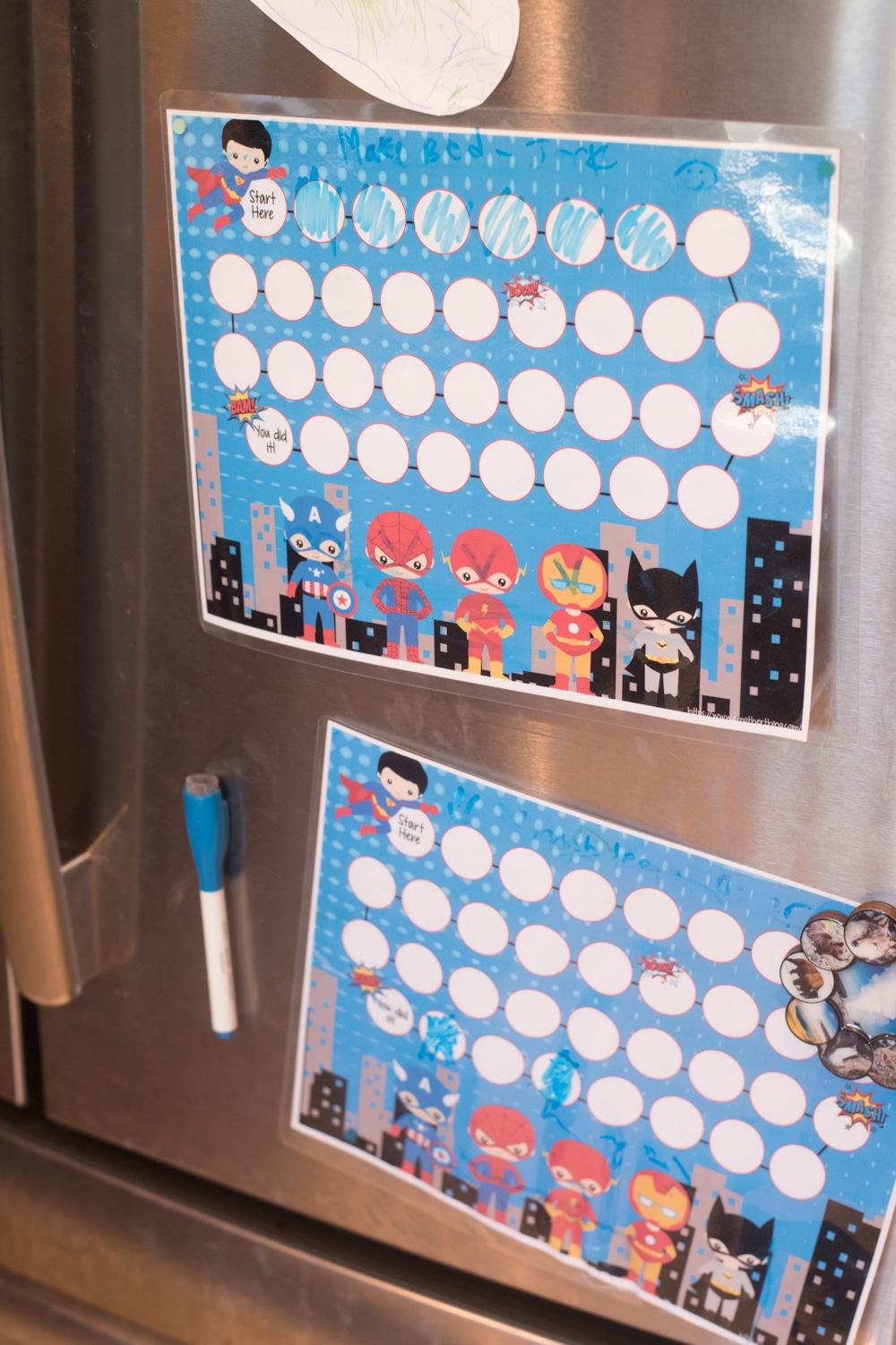
Follow Through
If you ask your child to do something – don’t do it for them. IF they don’t do it, keep encouraging them to.
I think one of the most important things we can do for our kids is follow through with the things we say – what we expect of them, consequences, etc. If we don’t, then they don’t have much incentive to do things if they know mom and dad will just come to the rescue!
Expect them to clean up their messes
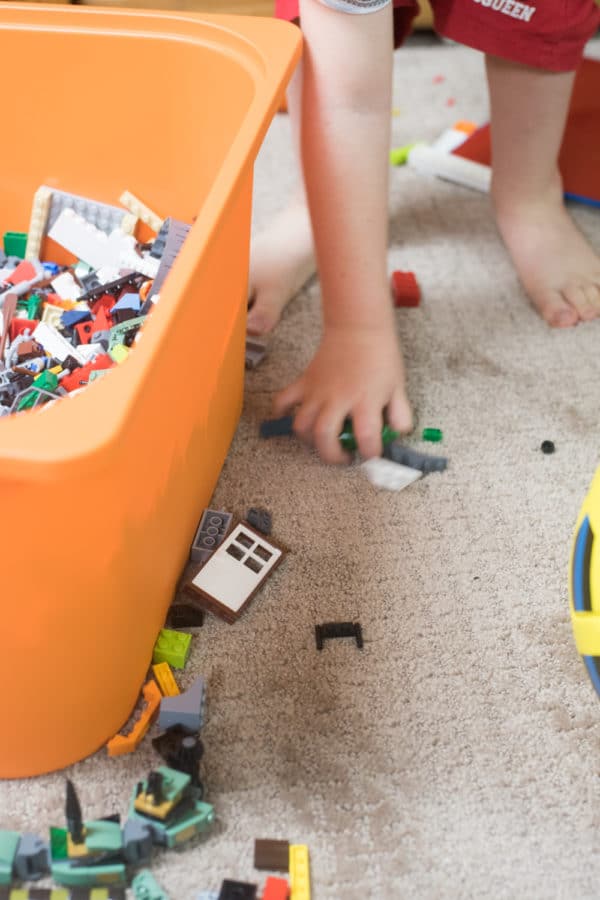
Both literally and figuratively! If your child spills milk – have them clean it up themselves (but be willing to lend a helping a hand if they need it!)
If they hurt someone’s feelings or mess up at school – don’t just swoop in and come to the rescue. Encourage them to recognize what they did wrong and talk about what they can do to fix it.
Whenever we are at my mom’s house, the kids always seem to make a mess in the basement (especially when there are lots of cousins to play with!). This has been a simple way for us to have our kids learn that they don’t just leave messes at other people’s houses. The last time we were there, Jack didn’t even have to be asked to pick up the basement when they were done.
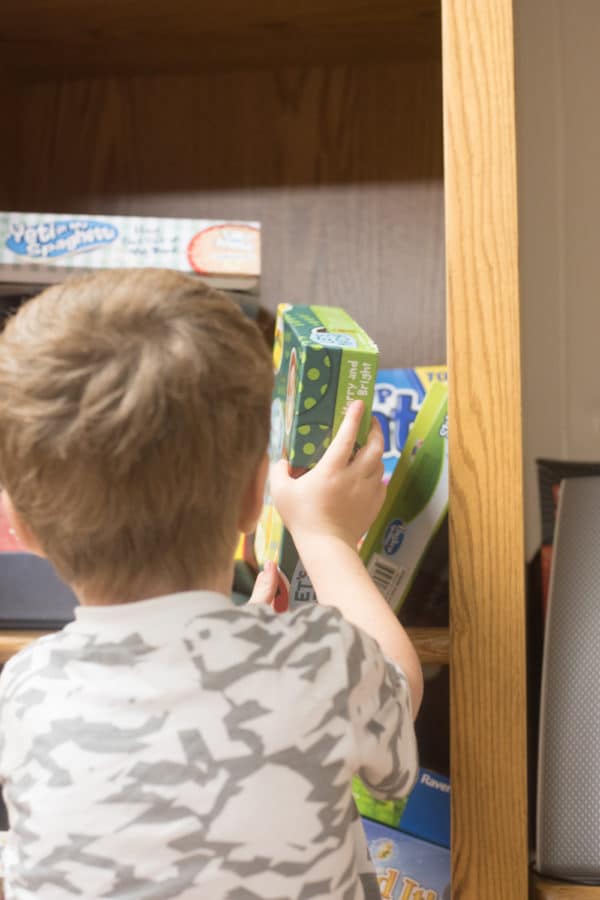
Be an Example
Our children learn first from us – if we aren’t being responsible for things, then what motivation do they have?
This year, I’ve really tried hard to keep our home picked up. Not only do I feel better not having a cluttered home, but it provides an example for my children. When I ask them to help pick up, they can look at the example I’ve set and known that’s the expectation.
This is also a great way to establish new habits and routines – show the example first and then have them copy or help you. For instance, I had Jack start cleaning his bathroom. I started out by having him watch me clean the other bathrooms, and I started having him do some of the tasks.
Have a Schedule and Routines (Visual is Great!)
At the beginning of the school year last year, one of my friends shared a visual schedule she created for each of her kids for their after-school routine.
I LOVED it so much – and she shared it with everyone. I printed it off, and I can’t even begin to explain how well it worked for Jack. As soon as he came home, he just went down the list and did everything on it.
Kids are creatures of habits and allowing them to get into a good routine can help them learn expectations for your home and hopefully create their own good habits.
Let Them Help
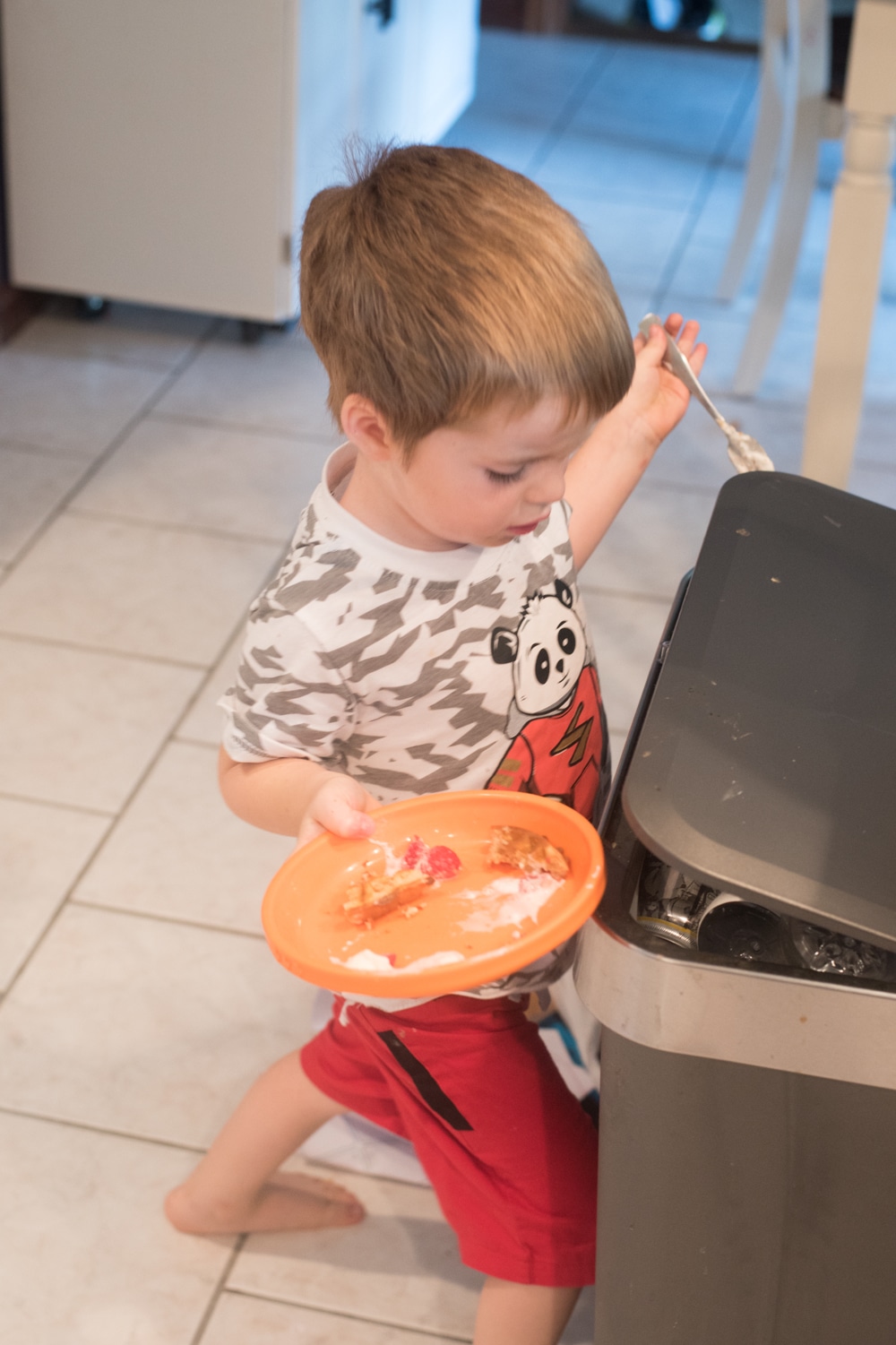
This is one of the things you can do from a very young age – though it can be harder than it looks!
Sometimes it’s just easier to do things yourself and involving your child adds an element of difficulty – but it’s so worth doing. Children love to feel involved. If you want them to help with tasks when they are older, start young!
This also means when they say things like “No, I do it myself!” letting them actually do something themselves (if appropriate). I’ll admit – I’m not always the best at this! Sometimes I just want to buckle Oliver into the car seat myself because it takes so much less time…but allowing them to be independent without your prompting – and being successful – can make a world of difference!
Work and Play
Teach the principle of work first, play second.
I think that children should spend lots of time playing, but they also need to understand that not all of life is meant to be played.
You can say simple things like, “First we will clean up lunch, and then you can play with your toys”, just to emphasize the idea that sometimes you do something less fun first, but it can make the fun task even more enjoyable.
Let them Pay for Things
It’s great to give our kids gifts and surprises from time to time, but I think some of the greatest satisfaction can come from saving up for something and paying for it yourself.
Encourage your child to save their money, especially – and if they choose not to, if they want something, it’s a great learning moment that you can’t always afford things.
If they break something, having them pay for it (or at least part of it) can be a great lesson in taking responsibility for their actions. If a child thinks you’ll always replace everything when they damage it, they have no reason to try and be more careful.
Don’t Always Rescue
I’m not the best at this, but I’m trying to be better. Sometimes kids just have to learn from their mistakes.
Perhaps they forgot their homework or their water bottle once in a while – that’s okay! I would go take it to them at school.
But if it becomes a regular thing, the only way they might learn is if you say you won’t bring it that time.
Though if that doesn’t work, helping them come up with ways to help them remember the things they are forgetting. Some kids do need a little bit of extra help!
Natural Consequences
There are many methods for discipline out there, but the one that has always stood out to me most is that of natural consequences.
Essentially, if a child misbehaves or breaks a rule, the consequence that follows is one that naturally happens because of breaking that rule.
For example, if a child sneaks fruit snacks or another treat when they aren’t supposed to and leave the trash laying around, the consequence would be that there will no longer be that kind of treat available.
Or if you are playing a game, and the child refuses to pick up the game, they won’t be able to play a game next time they ask.
I believe that teaching what naturally happens when a rule is broken is the most effective way to teach!
Focus on Effort
While it’s easy to want to focus on the result, so much comes from focusing on the effort.
Kids mess up. We all do! And while sometimes that’s their own fault, often it’s not because they aren’t trying.
When we focus on the effort they are putting into something, it makes them feel more encouraged in their ability to improve.
Overall, just be encouraging! I know that when I feel encouraged by someone else, I’m far more likely to want to finish the task at hand than if someone is breathing down my neck and telling me all the things I’m doing wrong.

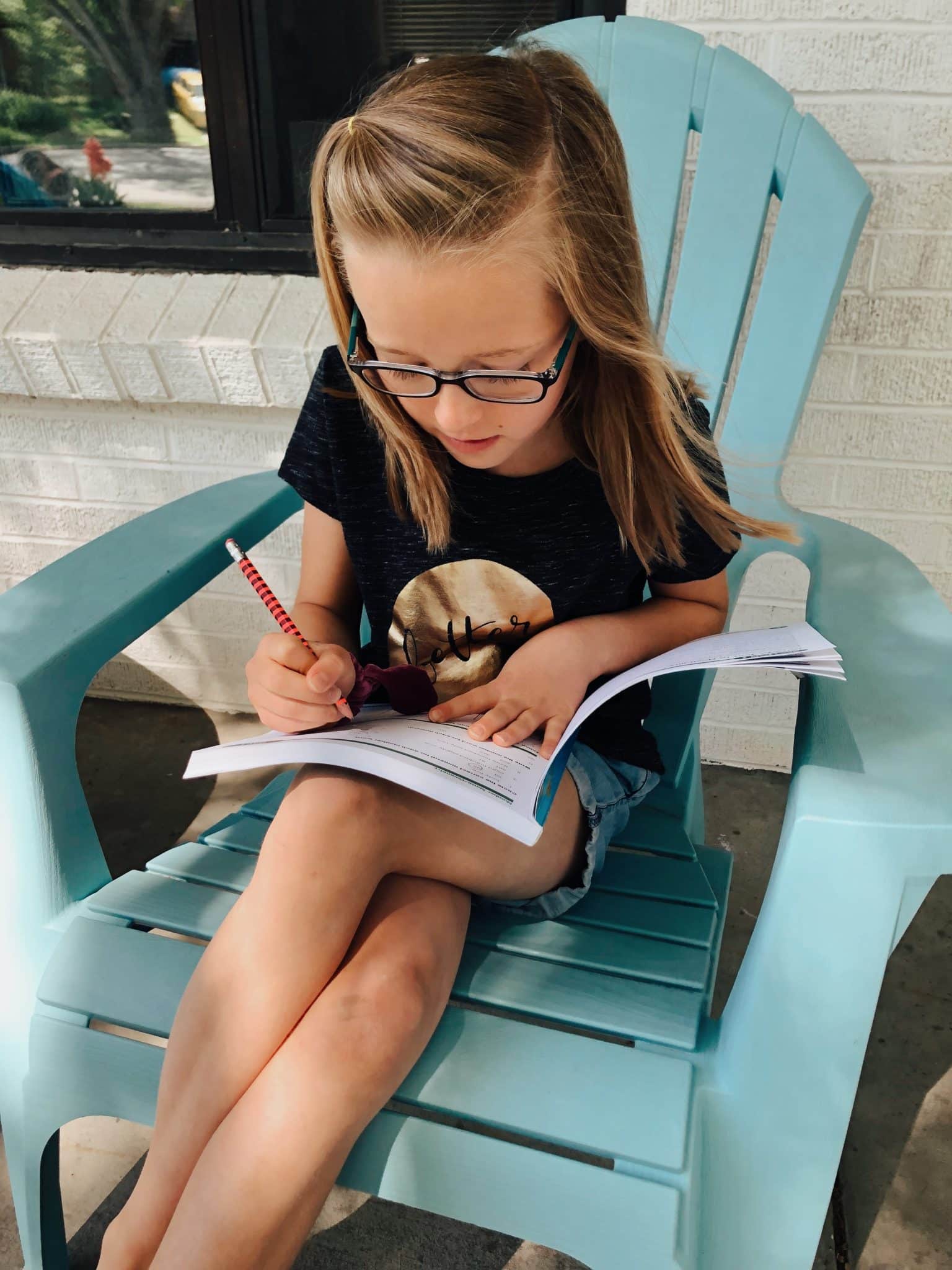

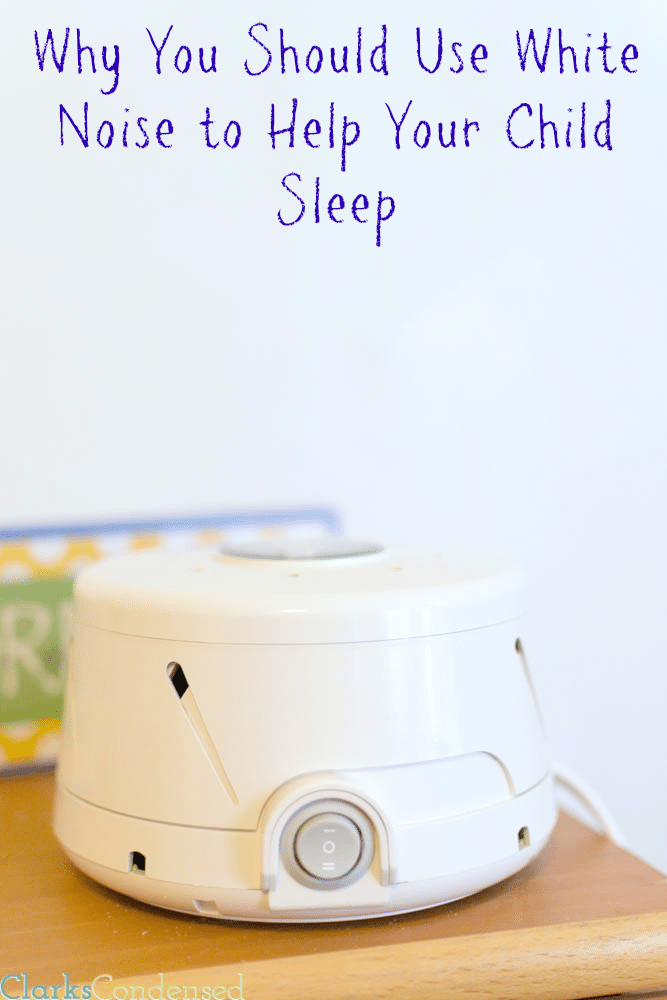

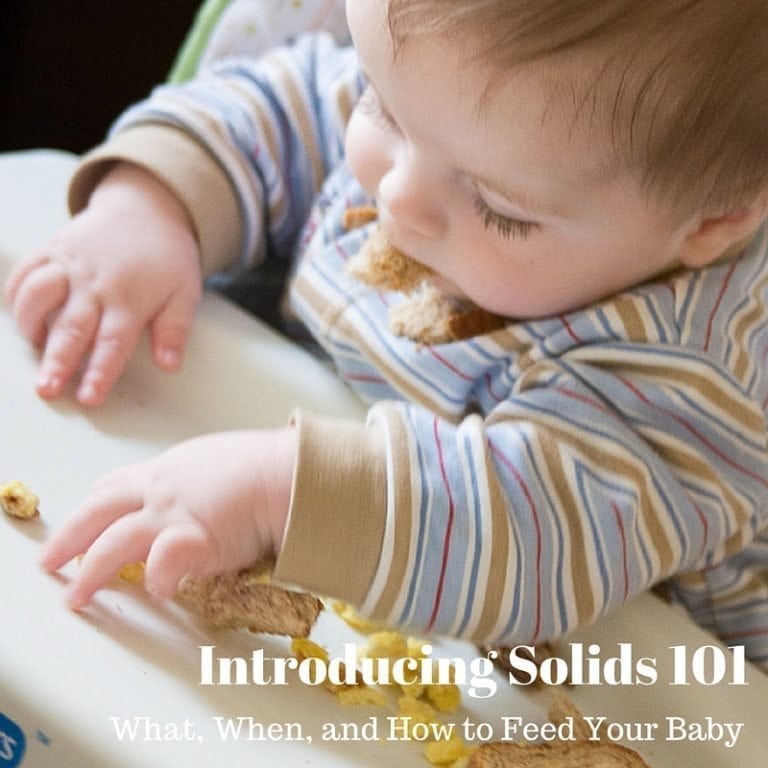
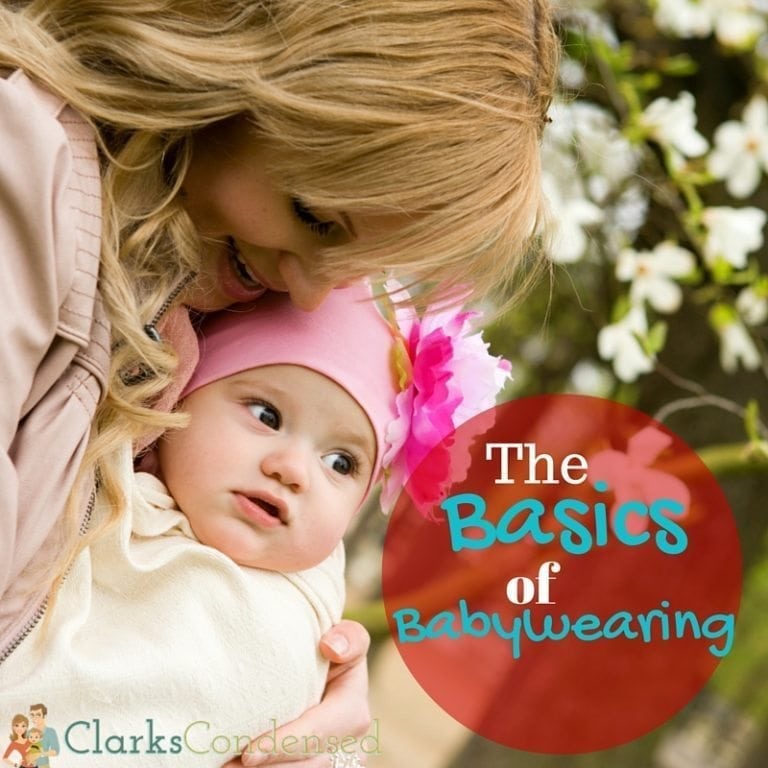
These are so great! It’s amazing how much changing your expectations can improve your life, and your child’s life! Thanks for sharing!
It’s always good to teach your kids responsibility at a young age and to develop good habits. These tips are definitely helpful!
I am working on creating a morning routine and chore chart for my almost 5 year old. She has been babied a bit too long.
I love all your suggestions! All of our kids had a pet when the time was right for them (around 9.) I think it helped them to learn responsibility and compassion. (Of course, I always checked in to make sure the pets were getting good care.)
A couple of my kids had asthma, and Breathe Right would have been a great tool for them. (Fortunately, they all outgrew their asthma.)
My niece is five and we are trying to teach her some house chores. It needs a lot of patience first but totally worth it!
It is so important to give kids a healthy amount of responsibility. I always did that with both of my kids.
I preach follow through to everyone I come in contact with! I’m an educational consultant and work with teachers on all aspects of teaching. Follow-through will kill you if you don’t do it.
I love this so much because I focus on responsibility in my house too. It’s so important to start them at an early age. Of course like you mentioned it has to be reasonable. I tell my kids that I’m teaching them all the important tools so when they get older and they know what to do.
My kids are grown, but we took the responsibility very seriously. They worked for the things that they have and learned to take care of them. We didn’t provide cellphones, but they could join our plan if they paid their share & didn’t take advantage of it. Same with driving. They had to pay their share of car insurance as well. They are both financially responsible today.
Routines are SUCH an importance and we really strive through it with our daughter who starts Kindergarten. It’s always great to have the oldest help too!
All parents of young children need to read this! It’s so important to give kids age-appropriate chores and responsibility. I think sometimes parents don’t realize how important it is to teach kids to grow up to be responsible adults.
Great tips! Starting early is key
I always try to give my kids more responsibility. They are getting older, and I have learned to step back. Sometimes they need to make mistakes in order to learn. They also have chores and things they must do in order to earn money or other rewards.
It is so important to give kids a little responsibility and se how they react to it. As they grow and progress keep adding a little more. It helps to start early and teaching healthy habits should be rewarded.
Absolutely!
Lately my four-year-old has been loving when he gets to help take care of his two-year-old brother. It’s really exciting since we have a baby on the way! I can tell he’s so proud of himself when he helps.
It’s so wonderful when the older siblings are able to start helping with the younger ones!